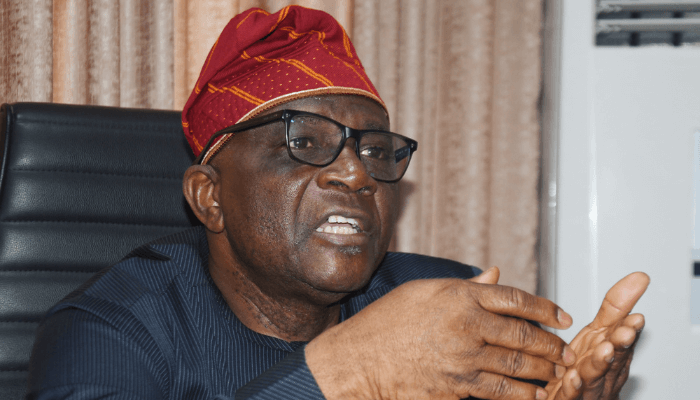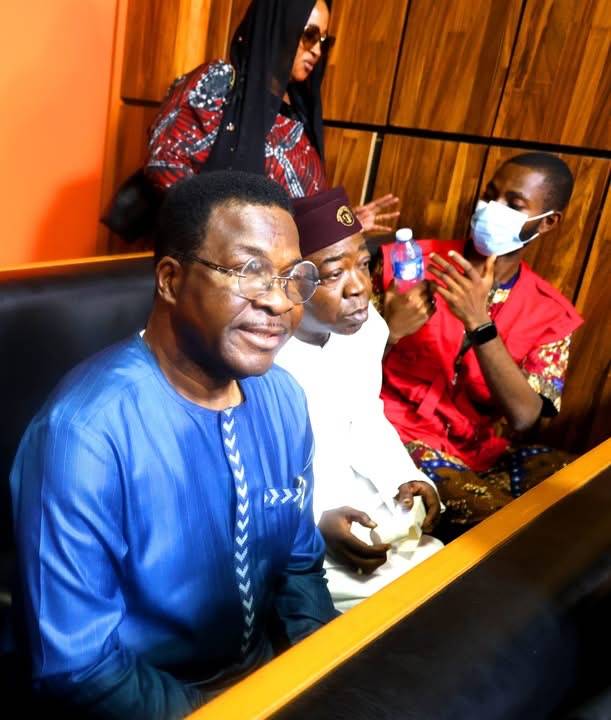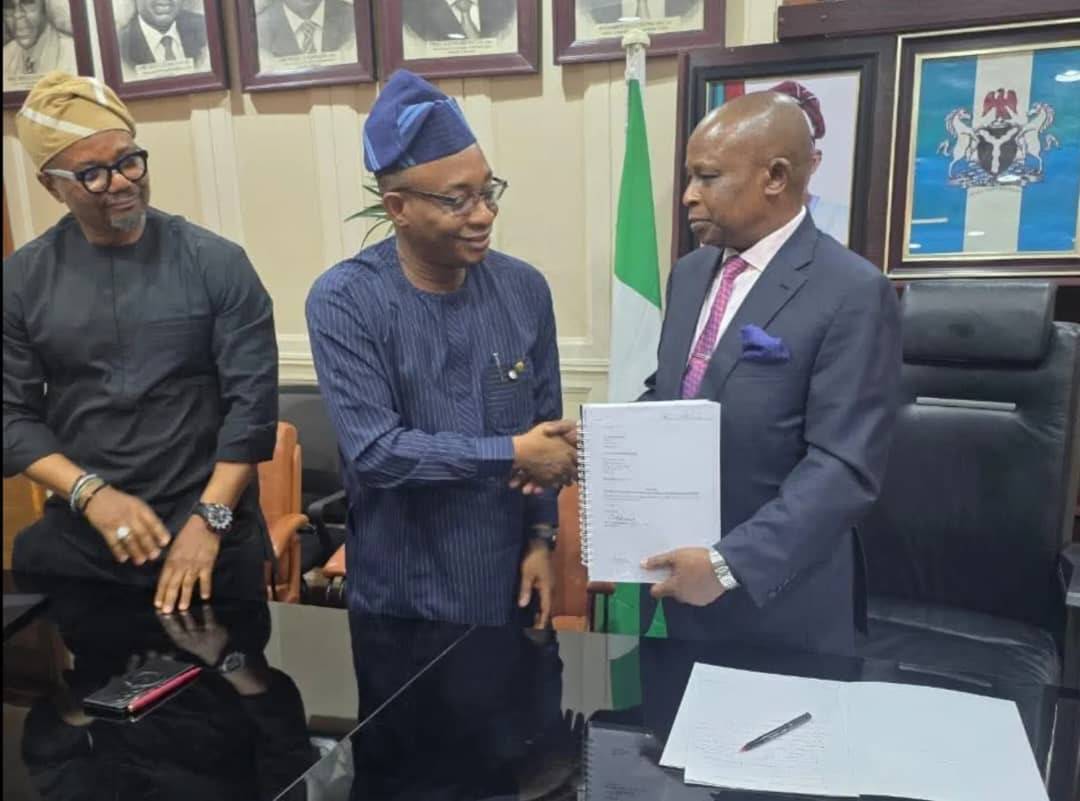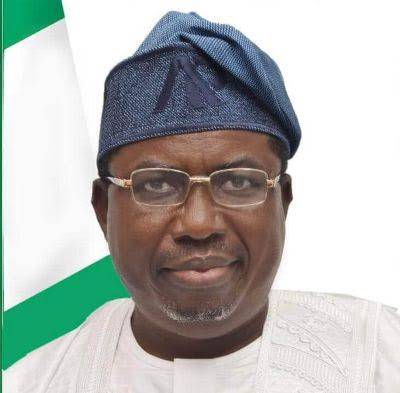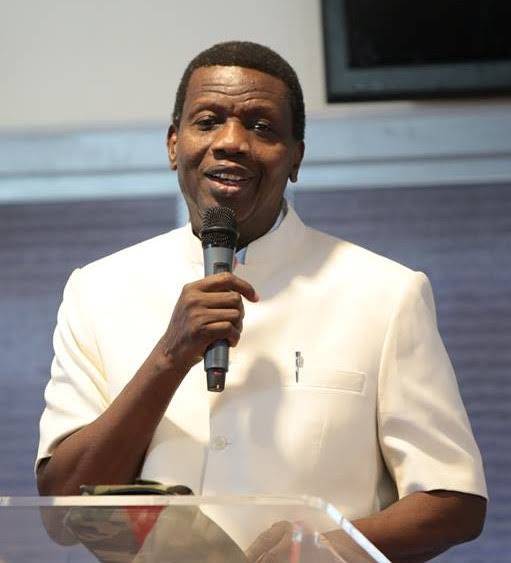“The police are the public and the public are the police; the police being only members of the public who are paid to give full-time attention to duties which are incumbent on every citizen in the interests of community welfare and existence.”
——Anonymous
President Bola Ahmed Tinubu, GCFR, has vivified conversations around the over-flogged recurring issue of state police. Much detested as the issue is to some that are feeding fat on the lopsided federal structure called Nigeria, state police remains the most practical solution to law enforcement in our current insecurity-infested and culturally heterogeneous entity.
During a recent meeting with Katsina state elders in Aso-Rock Presidential Villa, the president hinted about his resolve to give state police a shot. As a progressive that has for decades been in the forefront of strident calls for true federalism, most people, especially his close admirers like yours sincerely, consider this as coming a little belated. Being a repository of policing needs and challenges since his days as governor of Lagos State, Tinubu’s shared presidential thoughts about the way to go in combating security challenges in the states is thought provoking.
His listed realistic conditions, including the deployment of security outfits that understand the terrains, showing respect for local cultures and one that must be easily connected to the grassroots. These prescriptions are obviously beyond what the Nigeria Police Force (NPF) as presently constituted for the federation can meet. Therein lies an urgent need for an empirical, not rhetorical police reforms in the country.
His succinct words: “The security challenges that we are facing are surmountable. Yes, we have porous borders. We inherited weaknesses that could have been addressed earlier. It is a challenge that we must fix, and we are facing it….I am reviewing all the aspects of security; I have to create a state police. We are looking at that holistically. We will defeat insecurity….”
That the inevitability of state police is now receiving the desired attention at the highest level of government is heartwarming. Yours sincerely shares the president’s sentiments on state police based on a holistic approach but with a caveat that his definitive words are met with the long awaited affirmative action.
The NPF, like in any modern society, must play and be seen to be playing a critical constitutional role of maintaining internal security through the protection of lives and property, apprehension of offenders, maintenance of public safety and enforcement of law and order. But the questions on several minds are: How effective is the police in the prevention and detection of crimes? How effective is the police in the protection of rights and freedom of Nigerians as enshrined in the grundnorm of the land? Answers to the above questions amongst others, sadly, cannot be in the affirmative.
As things stand today, the police as an institution cannot be accorded high ratings in its discharge of aforementioned duties. However, it won’t be hyperbolic to state that chiefly among the largely avoidable problems of police is over centralization of its command structure, which is antithetical to federalism purportedly practised by the country.
Nigeria pretends to run a federation with unitary features. The 1999 constitution (as amended) affirms this. For instance, the grundnorm makes the thirty-six states’ governors the chief security officers of their states when in actual practice, the power to control the police resides with the president through the Inspector General of Police whose tenure is at the mercy of same leader.
The states as sub-national units suffer more when it comes to effective control over police affairs in their jurisdictions. They are daily faced with situations requiring immediate control but are unable to act because actual police control resides in Abuja.
Two troubling examples, one recent and the other not too recent happened in the country with frightening implications for guaranteeing effective policing in our sub-national units. The two incidents point at a perilous centralisation of police control lever at the expense of effective urban cum communal policing.
The first example happened sometime in early 2022 when Governor Babajide Sanwo-Olu had a humiliating encounter with a police officer somewhere in Magodo area. The police officer, an unnamed Chief Superintendent of Police (CSP), refused to obey Sanwo-Olu’s order to withdraw policemen on an allegedly illegal frolic of laying a siege to Magodo Phase 2 Estate over a lingering land crisis. He directed the police officer to call his superiors, but instead, the disrespectful dialogue below ensued between the governor and the CSP:
Sanwo-Olu: “Can you call your superiors in Abuja that the governor is here and I’m the chief security officer; tell them that you don’t have any business in my state and that I want you to disengage from here…..That’s why I want you to make a phone call and tell your superior that I’m here, standing in front of you. Make that phone call.”
CSP’s response: “Yes sir. I’m here on the instruction of the inspector general of police, through the attorney general, sir, and that is why I’m here. I’m too small or too low to call them Your Excellency. With due respect, you can call them directly, sir.”
The governor further asked him who his superiors were? the CSP replied: “Inspector General of Police, through the AGF.”
Sanwo-Olu unrelentingly told the CSP that he spoke to the attorney-general earlier, and he denied being aware of the police presence in Magodo for that operation. Yet, the CSP contemptuously replied the governor that he was “expecting a call to disengage the ‘several’ armed police officers within the estate.”
Further attempt by Sanwo-Olu to know the number of policemen deployed for the estate’s operation from the CSP was dismissively declined “for security purposes.”
The second illuminating example is the very recent lamentations of Governor Dauda Lawal of Zamfara State over his institutional limitations to tackle incessant insecurity in his state despite being its chief security officer. Yours sincerely consider this incident as another classical example of the need to hasten the process of creating state police by President Tinubu.
Governor Lawal hopelessly lamented the insecurity situation in his jurisdiction thus: “I swear to Almighty Allah, wherever a bandits’ leader is located within Zamfara State, I know it, and if he goes out, I know. With my mobile phone, I can show you where and where these bandits are today. But we cannot do anything beyond our powers…..If today, I have the power to give orders to the security agencies, I can assure you that we will end banditry in Zamfara State within two months.”
He further stated: “Most of the time, I shed tears for my people because I can see a problem but, because I don’t have control over the security agencies, I cannot order the security operatives to act in time.”
Right thinking people should feel sorry for a Nigeria where governors of the subnational units believed to be CSOs of their respective states cannot control police officers in their states. Yet, successive federal governments of Nigeria continue to budget and waste trillions of scarce funds on combating avoidable insecurity when the actual foundational modus for stepping the criminality in the bud remains disconnected. This makes our misplaced security spendings more like a huge joke-a complete waste, so far.
The problems that ensued from aforestated examples of Sanwo-Olu and Lawal are daily occurrences with other states’ governors facing insecurity and other criminal infractions arising from avoidable centralization of police control. Such is nothing but a denigration of the exalted governorship position.
The Sanwo-Olu/Lawal issues and other emanating incidents of insecurity/criminality in states stand as reasons why the nation needs state police now, more than ever before. This is without prejudice to espoused envisaged problems of state police largely attributable to the ’Nigerian Factor.’ Notwithstanding, state police remains a more pragmatic and effective panacea to the nation’s heterogeneous security problems.
However, strident antagonists of state police can’t deny the fact that the current federally employed police population of barely 400,000 to a population of over 200 million is superfluous. With this scanty police population, how do we expect effective policing of thousands of communities particularly in rural areas that have been made vulnerable to the shenanigans of bandits, gunmen and kidnappers across the nation’s six geo-political entities. A decentralized law enforcement system is inevitable if only to facilitate effective coverage and prompt response in times of security emergencies.
The fear of political misuse of state police is germane considering the lawless inclinations of most governors and politicians generally. But in reality, some wealthy and influential people still deploy police personnel to serve their whims and caprices at the detriment of upholding citizens’ inalienable rights.
So, police abuse is not by governors alone but equally by influence peddling and money-miss-road people amongst us. Effective legislative checks can be put in place to curb such and other adduced impediments. And where this is not enough, the judiciary is there as final arbiter in resolving personal and institutional conflicts. With state police whenever it’s introduced, the teething stage is the learning curve pending when the nation gets it right. We can’t run away from this rudimentary reality.
For the centrists who want the status quo ante sustained, their fears can be taken care of with a proviso ensuring that federal security forces can coexist and where necessary, intervene in situations that seem beyond any state’s control. Under incumbent President Donald Trump of the United States, such interventions have happened, with the latest being the recent deployment of federal troops in New York to restore peace and order. More importantly, state police, with clear-cut legislation, cannot diminish the powers and influence of the federal government. It will rather strengthen the nation’s law enforcement mechanisms by making it more responsive and effective for the betterment of all.
In Lagos, a state special law enforcement police designated as Rapid Response Squad, has been existing for over two decades, and still effectively operates within the federal policing constraints. The success of RRS underscores the necessity for a state police for the nation’s component units. This state police can take over from the local quasi-policing groups in existence across the country.
Comparatively, if multi-layered policing structures can happen in countries like the United States, United Kingdom, India, and even an African country like South Africa, nothing should stop its introduction in Nigeria. It will only avail the nation’s component units the confidence and legal protections to secure their jurisdictions against criminal tendencies. History is watching, and the president with his bold progressive tag hanging on his neck, cannot afford to be on the flip side of posterity.
His recent presidential declaration on state police should be pursued with substantial vigour, necessary to effect the desired constitutional amendment to birth a truly desirable state police. The National Assembly that sometime ago amended the Police Act, within days, to accommodate tenure extension for the current IGP, cannot afford to be an impediment, through foot dragging, on the path to achieving this lofty and long overdue presidential idea. It should not!
•Sanusi, former MD/CEO of LASAA, is a managerial psychologist and currently the managing partner of AMS RELIABLE SOLICITORS.




